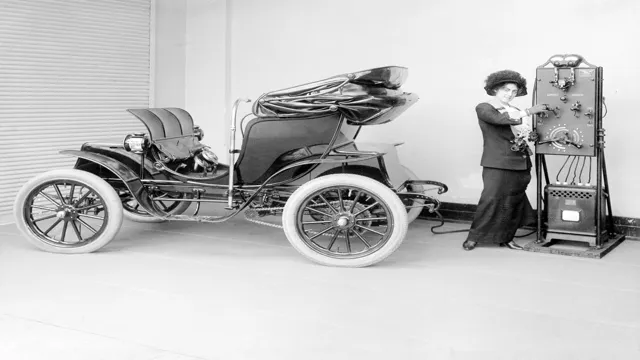The Electrifying Revolution: Tracing the History and Rise of Electric Cars
Have you ever stopped to think about the origins of the electric car? While it may seem like a recent innovation, the history of EVs goes back further than you might imagine. In fact, the first electric vehicle was built all the way back in the 1830s! Throughout the decades, numerous inventors and companies have contributed to the evolution of the electric car, and today we are seeing an explosion in their popularity. But how did we get here? In this blog post, we’ll take a deep dive into the fascinating history of EVs, exploring their early beginnings, major milestones, and how they have evolved into the sleek, efficient electric vehicles we know today.
Early Beginnings
The history and rise of electric cars dates back to the early beginnings of the automobile industry. In fact, the first electric car was invented in the late 19th century and was popular among urban dwellers because of its quiet and clean operation. However, the popularity of these early electric cars declined as gasoline-powered vehicles became more affordable and efficient.
It wasn’t until the 21st century, with concerns over environmental pollution and climate change, that electric cars began to make a comeback. As technology improved and battery costs decreased, electric cars started to gain traction, and today, they are increasingly becoming more mainstream. Thanks to efforts by car manufacturers, government incentives, and increased public awareness, electric cars are now seen as a viable and sustainable alternative to traditional gasoline-powered vehicles.
With advancements in technology, the future looks bright for the electric car industry, and we can expect to see even more growth and innovation in the years to come.
First Electric Car Invented in the 1800s
The early beginnings of electric cars can be traced back to the late 1800s when the first electric car was invented. Surprisingly, the technology for electric cars was already available during this time, and some even thought that it was a better alternative to gasoline-powered vehicles. However, the cost of production was a major hurdle, and not many people could afford one.
The first electric car was invented in the US by an inventor named Thomas Davenport, who created an electric carriage in 183 It was a primitive vehicle by today’s standards and could only travel about 14 miles at a time before needing a recharge. While it didn’t take off immediately, it did lay the groundwork for future advances in electric cars.
In the years that followed, other inventors worked on improving the technology and creating more practical designs.
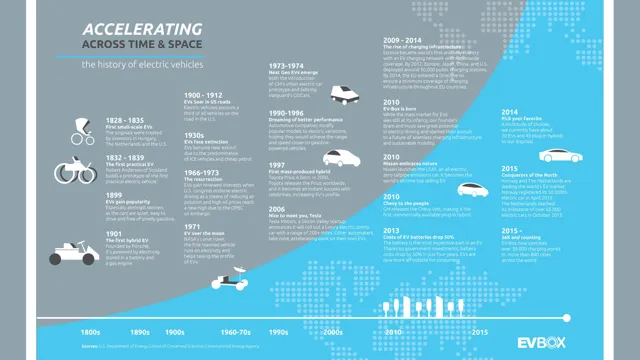
Popular in the Early 1900s, But Declined Due to Gasoline Cars
Electric cars were popular in the early 1900s before they declined due to the rise of gasoline-powered cars. In fact, electric cars were some of the first automobiles ever made. During this time, electric cars were considered a luxury item, and only the wealthy could afford them.
These early electric cars had a limited range of about 50 miles, but they were quiet and easy to drive. They also didn’t require shifting gears, which made them easier to handle than gasoline-powered cars. However, electric cars couldn’t keep up with the increasing demands of drivers who wanted to travel longer distances.
As gasoline became more readily available, gasoline-powered cars became more popular, and electric cars became less common. Despite their decline, electric cars are now making a comeback due to their environmental benefits. With advancements in technology, electric cars can now travel longer distances and are more affordable than ever before.
The Modern Age of EVs
Electric cars have been around for over a century, but it wasn’t until the modern age that they really began to take off. In the mid-2000s, Tesla Motors became the trailblazer for the industry, releasing the world’s first mass-produced electric car with a range of over 200 miles. From there, other automakers began to see the value in electric vehicles, and the popularity of EVs has only continued to grow.
Battery technology has also improved significantly over the years, allowing for faster charging times and longer ranges. In recent years, governments and automakers alike have been investing heavily in the electric car market, with the aim of reducing carbon emissions and creating a more sustainable future. As a result, we’re now seeing a wider range of electric cars available to consumers than ever before, from compact city cars to high-end luxury vehicles.
The rise of electric cars has undoubtedly been a long time coming, but it’s a welcome change that promises to transform the way we think about transportation.
Rise of Hybrid Cars in the 1990s and 2000s
The modern age of EVs has come a long way since the rise of hybrid cars in the 1990s and 2000s. While the concept of a hybrid vehicle was still relatively new at the time, it sparked a wave of innovation in the automobile industry that has paved the way for the EVs we know today. In fact, hybrid vehicles were the first step towards the development of fully-electric cars.
As the world around us changes, so does our need for more eco-friendly and efficient modes of transportation. The onset of this new era of EVs has given us more options, such as plug-in hybrids and all-electric vehicles, which are becoming increasingly popular. With advancements in battery technology, range anxiety is slowly becoming a thing of the past, and we can expect the market for EVs to only continue to grow.
It’s an exciting time for the automobile industry as we see a shift towards more sustainable modes of transportation.
Tesla: Revolutionizing the EV Market
Tesla has been a game-changer in the electric vehicle (EV) market by revolutionizing how we perceive and use these vehicles. Gone are the days of clunky, unattractive electric cars that lacked range and were limited in functionality. Tesla has brought a fresh and modern approach to the table, making EVs a desirable option for mainstream consumers.
The sleek design, advanced technology, exceptional driving performance, and environmental benefits of Tesla’s EVs have taken the world by storm. The company’s innovative battery technology has set the benchmark for the industry, offering greater range and efficiency. With increased investment in research and development, Tesla is leading the way towards a sustainable future, promoting cleaner energy options and reducing our dependence on traditional fossil fuels.
Tesla’s cars are not just efficient and environmentally friendly but also stylish, fast, and full of practical features, making them a practical and desirable option for any driver. There’s no arguing that Tesla has positively impacted the automobile industry and paved the way for a new era of electric vehicles.
Benefits of EVs
The history and rise of electric cars is a fascinating topic. Electric vehicles (EVs) have been around for almost as long as cars themselves, with the first prototypes dating back to the 1800s. However, it wasn’t until the 1990s that they began to gain popularity among consumers.
This was due in large part to advancements in battery technology, which made EVs more practical for everyday use. In recent years, the rise of electric cars has been driven largely by environmental concerns, as people look for ways to reduce their carbon footprint. However, there are many other benefits to electric vehicles as well, such as lower fuel costs, quieter operation, and smoother driving.
As technology continues to improve, it’s likely that more and more people will make the switch to electric cars in the coming years.
Reduced Emissions and Lower Environmental Impact
Switching to electric vehicles (EVs) can significantly reduce emissions and have a lower environmental impact than traditional gasoline-powered cars. EVs generate fewer emissions because they run on electricity from batteries instead of burning gasoline or diesel fuel. This means that they produce less pollution, leading to cleaner air and a healthier environment.
Additionally, EVs often produce less noise pollution since their electric motors are quieter than traditional engines. Over the long term, reduced emissions from EVs could lead to a significant reduction in greenhouse gas emissions that contribute to climate change. As more people adopt electric vehicles, we can expect to see a positive impact on the environment and our overall quality of life.
So, what are you waiting for? It’s time to make the switch to an EV and contribute to a cleaner and healthier planet.
Lower Cost of Ownership and Maintenance
One of the biggest benefits of owning an electric vehicle (EV) is lower cost of ownership and maintenance. Compared to traditional gas-powered cars, EVs have fewer moving parts and therefore require less maintenance. This means that not only will you save money on routine maintenance tasks such as oil changes and spark plug replacements, but you’ll also spend less on costly repairs over the life of the vehicle.
Additionally, EVs tend to have a much lower cost per mile of operation than gas cars, which means you’ll spend less money on fuel in the long run. With these cost savings combined, it’s clear that EVs can be a smart financial choice for many drivers.
Future of EVs
The history and rise of electric cars is a fascinating topic. Electric vehicles (EVs) date back to the late 1800s when inventors were experimenting with battery-powered cars. However, it wasn’t until the early 2000s that EVs began to gain serious traction.
The launch of Tesla’s Roadster in 2008 was a game-changer, proving that electric cars could be as fast and reliable as their gas-powered counterparts. Since then, the EV market has exploded, with major car manufacturers investing heavily in electric technology. In 2020, EVs accounted for
6% of global car sales, and that number is only expected to increase in the coming years. As more governments push for carbon-neutral economies and environmental concerns become more pressing, it’s likely that we’ll see a shift away from traditional gas-powered cars towards cleaner, more sustainable EVs. The history and rise of electric cars is a tale of innovation, perseverance, and the power of technology to shape our world.
Increased Adoption and Availability
The future of electric vehicles (EVs) is looking bright, with increased adoption and availability on the horizon. As more and more consumers are interested in environmentally-friendly alternatives, EVs are becoming a popular choice for transportation. Major automakers are also investing in EV technology, with companies like Tesla leading the way in innovation.
In addition, advances in battery technology are driving down costs and increasing the range of EVs, making them more practical for everyday use. With the expansion of charging infrastructure and government incentives for EV adoption, it’s clear that the future of transportation is electric. So, are you ready to join the EV revolution? With the environmental benefits and cost savings that come with owning an EV, there’s never been a better time to make the switch.
Advancements in Battery Technology and Charging Infrastructure
The future of EVs is looking bright with advancements in battery technology and charging infrastructure. One of the biggest challenges with EVs has been range anxiety, where people are concerned about being unable to travel long distances without having to stop and recharge their vehicles. But with new battery technology, EV drivers can expect longer ranges and faster charging times.
For example, solid-state batteries have the potential to achieve ranges of up to 500 miles on a single charge and can be charged in under 10 minutes. Charging infrastructure is also being improved with the development of ultra-fast charging stations that can provide up to 350 kW of power, allowing for quick and convenient charging on long-distance trips. As technology continues to evolve, it’s clear that the future of EVs is a promising one, with cleaner and more efficient transportation options.
Conclusion
In conclusion, the history and rise of electric cars can be summed up in three words: electrifying, transformative, and sustainable. From their humble beginnings as simple electric buggies to the cutting-edge, high-tech, and eco-friendly vehicles of today, electric cars have come a long way. They have revolutionized personal transportation, forever changing the way we think about mobility and energy efficiency.
With their zero-emissions and low operating costs, electric cars are paving the way to a cleaner, greener, and more sustainable future. So, next time you see an electric car zooming by, remember that it’s not just a car, it’s a symbol of progress, innovation, and hope for a better tomorrow.”
FAQs
1. What is the history of electric cars?
Electric cars have been around for over a century, with the first electric vehicle being developed in the 1830s. However, it wasn’t until the 1990s that they began to gain popularity and receive serious attention from automotive manufacturers.
2. What advantages do electric cars offer over traditional gasoline-powered cars?
Electric cars are more energy-efficient and produce no emissions during operation, making them more environmentally friendly than their gasoline counterparts. They also require less maintenance and offer a smoother and quieter driving experience.
3. How have advancements in battery technology influenced the rise of electric cars?
Advancements in battery technology, such as the development of lithium-ion batteries, have greatly improved the range and performance of electric cars. This has made them more practical for everyday use and helped to increase their popularity.
4. What is the current state of the electric car market?
The electric car market continues to grow, with more models being introduced by major automakers and increasing demand from consumers. Many countries are also offering incentives to encourage the adoption of electric vehicles in an effort to reduce carbon emissions and combat climate change.
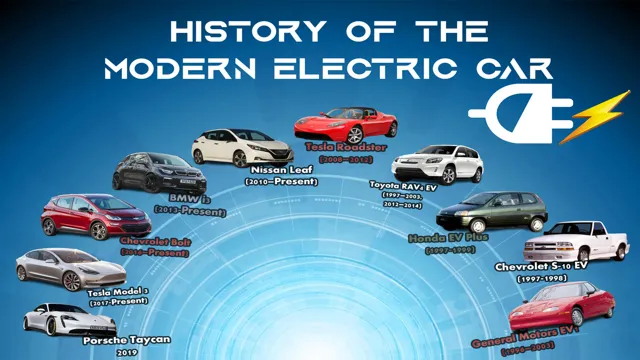
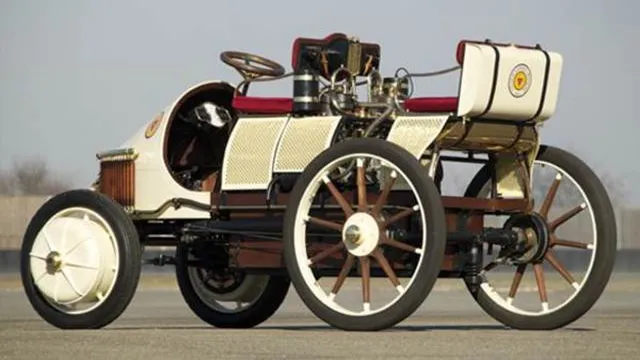
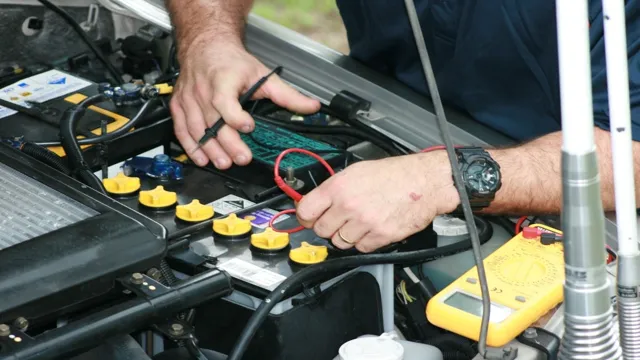

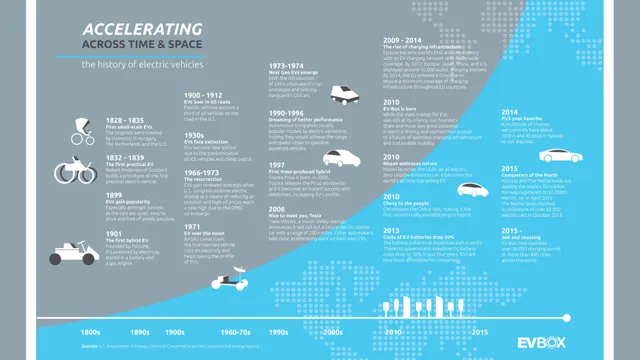
![The Shocking History of Battery-Only-Powered Cars: Unveiling the Rise of Electric Automobiles [PDF]](https://electriccarwiki.com/wp-content/uploads/2023/10/history-of-the-electric-automobile-batteryonly-powered-cars-pdf.webp)
